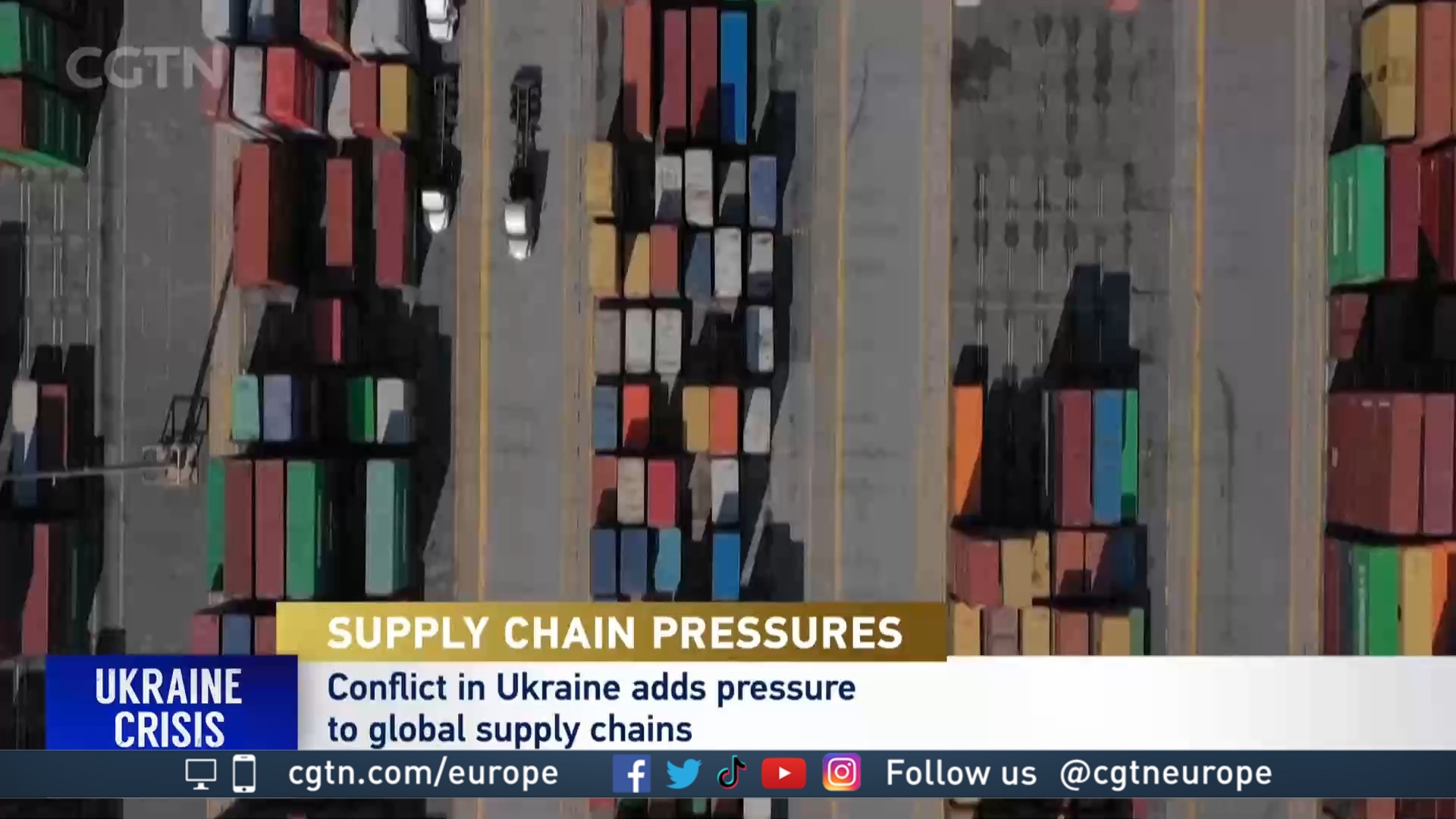02:29

Dependency on imports has exacerbated a supply chain crisis in many global industries, including the automotive sector. The conflict in Ukraine is causing drastic reductions in a variety of the country's export products.
In addition to wheat and sunflower oil, where shortages are causing huge strains on global food supplies, there have been considerable disruptions to the trade in electrical wiring. Vehicle manufacturers rely on intricate wiring harnesses made in the war-torn country.
The fighting has forced many European car manufacturers and auto parts companies with factories in Ukraine to reduce production or close them altogether.
Consequently, global production output targets have had to be adjusted downwards. Europe's largest automaker Volkswagen has suspended assembly lines due to the shortage of parts manufactured in Ukraine.
During its annual press conference in March, Herbert Diess, executive director for the Volkswagen Group, said the firm was planning to relocate its Ukrainian plants, a process "which will take time," he said.
Germany's BMW group has also halted production at two of its factories and reduced down its 2022 profit target, while French tyre manufacturer Michelin has closed some of its plants in Europe due to logistics issues created by the conflict.

It's predicted that 12 million fewer cars will be built this year, according to predictions. /CFP
It's predicted that 12 million fewer cars will be built this year, according to predictions. /CFP
Both Hyundai's and Toyota's St. Petersburg plants have been closed due to disruptions in supply chains, while automaker Renault is suspending manufacturing in Moscow because of the conflict. In addition, many of the raw materials used in car parts come from Russia.
In response to sanctions placed on the Kremlin for its actions in Ukraine, Russian President Vladimir Putin has threatened to restrict trade in some of those materials, which could hurt the industry still further.
"The automotive industry will be the worst market in the world for the next 10 years," Ferdinand Dudenhoffer, director of Germany's CAR-Center for Automotive Research, told CGTN.
"The supply chains are really messed up and this is noticeable in the car market. Europe is suffering very badly, but of course so is the U.S. and also China."
Supply chain disruption due to the Russian-Ukraine conflict follows other problems to befall the automotive industry. Global COVID-19 lockdowns saw factories shut and deliveries grind to a halt. A subsequent shortage in semiconductors used in the electronics of most automobiles forced further manufacturing setbacks.
Following this, a disruption of magnesium production in China limited supplies of aluminum, a lightweight metal used in most car parts.
German growth hit
Since 10 percent of Germany's gross domestic product hails from carmakers and their suppliers, these supply issues have badly hurt the country's overall growth forecast.
Berlin recently slashed its economic outlook for the year from 4.6 percent growth to just 1.8 percent, citing the conflict in Ukraine.

Shortages of parts is leading to assembly line suspensions. /David W Cerny/Reuters
Shortages of parts is leading to assembly line suspensions. /David W Cerny/Reuters
"The Russian war of aggression against Ukraine has considerably worsened economic conditions," said Achim Truger, an economist and advisor to the German government.
"The war is further affecting supply chains, which were already strained due to the pandemic," Truger added. "This concerns, among other things, cable harnesses which are important for automotive production and which come from Ukraine. At the same time, natural gas and oil prices, which have risen sharply again, are weighing on companies and private consumption."
Reduced demand to follow?
The global cost-of-living crisis, exacerbated by rising energy prices, will bring further concerns down the road, says Dudenhoffer.
"We see that the crises are hurting and damaging growth rates in individual economies, such as China, and in Europe and America," he told CGTN. "People's incomes are becoming less, so we assume that manufacturing will recover from the production side, but then we have a problem with the demand."
In 2018, 97 million cars were built worldwide, according to Statista. This year it is predicted that fewer than 82 million will be produced, causing anxiety across the embattled industry.

